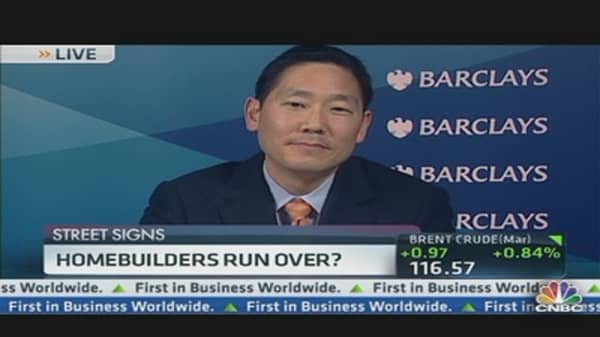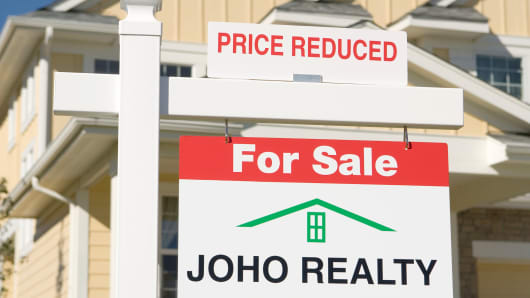Right now the divide between new and existing home prices is wider than ever. The average price of an existing home in December was $231,400, according to the National Association of Realtors, while the U.S. Commerce Department reported the average price of a newly built home stood at 304,000.
In their most recent quarterly statements, all of the largest public home builders reported large annual jumps in the average prices of their homes sold. Pulte's prices jumped 6 percent to $287000, for Lennar it was a seven percent surge to 261,000 and Meritage led the group with a 17 percent annual jump in average sale prices to $323,000.
(Read More: Soaring Housing Stocks in Perspective)
"New home prices are advancing faster than existing home prices because demand has increased and, as Kim did admit, the mortgage filter is allowing only higher income or at least higher net worth people through the application net, and they are purchasing higher valued homes. But that is true of existing purchases as well," argues David Crowe, chief economist for the NAHB.
Crowe also makes the argument that new home prices are dictated by costs and demand. Both, he says are rising.
(Read More: New Housing Fears:Home Prices Are Rising Too Fast)
"Lumber and other building material prices have risen very rapidly recently. Shortages of lots and labor supply are beginning to show up, and I expect as new household formations begin to recover, that shortage will expand to more markets. The way to get more resources back into the housing market is to raise the price paid, i.e., wages and land prices," says Crowe.
Builder profits, he notes, among the small private builders (who still control 70 percent of the market), have been negligible for several years.
"They will have to raise prices to compensate for their efforts, risks and, at least for a short time, being the only ones left," adds Crowe
(Read More: Is the Refi 'Apocalypse' Really Upon Us?)





